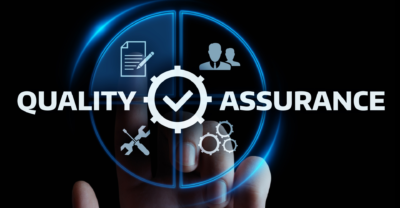How Cloud ERP Software is Revolutionizing Supply Chain Management for Modern Businesses?

In today’s competitive business landscape, effective supply chain management (SCM) is crucial to success. Businesses need to optimize their supply chains to reduce costs, improve efficiency, and meet customer demands. One of the most transformative tools for achieving these goals is Cloud ERP Software.
Cloud-based ERP systems are reshaping how businesses manage their supply chains, offering real-time data, enhanced collaboration, and improved decision-making. In this article, we’ll explore how cloud ERP software is revolutionizing supply chain management and why it’s a game-changer for businesses in 2025.
What is Cloud ERP Software?
Cloud ERP (Enterprise Resource Planning) software is a suite of integrated applications that help businesses manage their core processes such as finance, inventory, human resources, and supply chain operations. Unlike traditional ERP systems that require on-premise servers and infrastructure, cloud ERP systems are hosted remotely, making them more cost-effective, scalable, and accessible from anywhere.
The Growing Need for Efficient Supply Chain Management
Supply chain management is more complex than ever before. With globalization, increased customer expectations, and the rise of e-commerce, businesses need to adapt quickly to changing market conditions. Efficient supply chain management is critical to staying competitive, reducing costs, and ensuring timely delivery of products to customers.
However, many businesses still rely on outdated systems that are inefficient and prone to errors. This is where cloud ERP software comes in, offering a modern solution to streamline and optimize supply chain operations.
How Cloud ERP Software Enhances Supply Chain Management?
1. Real-Time Data and Insights
One of the biggest advantages of cloud ERP software is the ability to provide real-time data and insights. With traditional systems, supply chain managers often face delays in accessing crucial information, which can lead to inefficiencies and poor decision-making.
Cloud ERP systems, on the other hand, provide up-to-the-minute data on inventory levels, order status, shipping, and supplier performance. This enables businesses to make informed decisions quickly, improving responsiveness and reducing lead times.
2. Improved Inventory Management
Effective inventory management is at the heart of a successful supply chain. Cloud ERP software enables businesses to track inventory in real time, ensuring they have the right products in stock without overstocking or understocking.
This helps businesses optimize their inventory levels, reduce carrying costs, and prevent stockouts that can lead to lost sales. Additionally, automated alerts can notify managers when stock levels are running low, prompting timely reordering.
3. Enhanced Collaboration with Suppliers and Partners
Supply chains often involve multiple stakeholders, including suppliers, manufacturers, distributors, and retailers. Cloud ERP software facilitates better collaboration by providing a centralized platform where all parties can access and share information.
This improves communication, reduces the risk of errors, and ensures that everyone is on the same page. Suppliers can update inventory levels, track orders, and provide status updates in real time, improving transparency and trust across the supply chain.
4. Streamlined Order Processing
With cloud ERP software, order processing becomes faster and more efficient. The system automates many of the manual tasks involved in order fulfillment, such as order entry, invoicing, and shipping. This reduces the chances of human error, speeds up the order-to-cash cycle, and ensures that customers receive their orders on time.
Additionally, cloud ERP systems can integrate with e-commerce platforms, making it easier to manage online orders and synchronize them with inventory levels.
5. Better Demand Forecasting
Accurate demand forecasting is essential for optimizing supply chain operations. Cloud ERP software uses historical data, market trends, and advanced analytics to predict future demand more accurately.
This enables businesses to plan their production schedules, inventory levels, and procurement needs in advance, reducing the risk of stockouts or overproduction. Better demand forecasting also helps businesses improve their relationships with suppliers by providing them with more accurate information about future orders.
6. Cost Reduction and Efficiency Gains
By automating many of the manual processes involved in supply chain management, cloud ERP software helps businesses reduce operational costs. With real-time visibility into every aspect of the supply chain, businesses can identify inefficiencies and take corrective action.
For example, they can optimize shipping routes, reduce excess inventory, and negotiate better terms with suppliers. These improvements lead to cost savings and increased profitability.
7. Scalability and Flexibility
As businesses grow, so do their supply chain needs. Cloud ERP systems are highly scalable, meaning businesses can easily add new users, features, and modules as their operations expand. Whether you’re opening new locations, adding new product lines, or increasing your supplier base, cloud ERP software can adapt to meet your evolving needs. This scalability ensures that businesses can continue to manage their supply chains efficiently, no matter how large or complex they become.
Why Cloud ERP is the Future of Supply Chain Management?
As we move into 2025, businesses that don’t adopt cloud ERP solutions risk falling behind their competitors. The flexibility, real-time data, and cost-saving benefits of cloud ERP are becoming essential for businesses looking to optimize their supply chains and stay competitive.
By improving inventory management, enhancing collaboration, and providing better demand forecasting, cloud ERP software is enabling businesses to operate more efficiently and respond faster to market changes.
For a comprehensive Cloud ERP Software List that can help your business optimize supply chain management, check out this guide to top ERP vendors and systems.
Conclusion
Cloud ERP software is revolutionizing supply chain management by providing businesses with real-time insights, better collaboration, and more efficient processes. For SMEs and large enterprises alike, adopting cloud ERP is no longer a luxury—it’s a necessity for staying competitive in the modern business world.
By embracing cloud ERP software, businesses can optimize their supply chains, reduce costs, and improve customer satisfaction, setting themselves up for long-term success in 2025 and beyond.
Alexia is the author at Research Snipers covering all technology news including Google, Apple, Android, Xiaomi, Huawei, Samsung News, and More.












